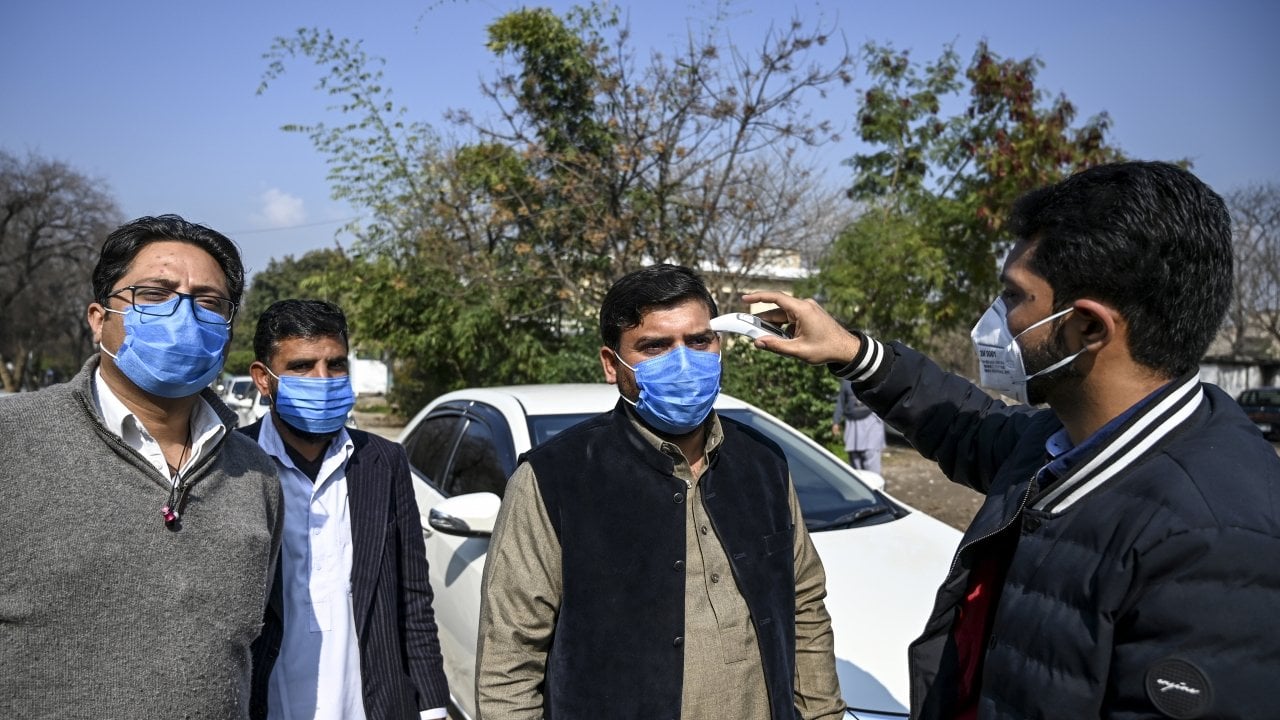
Men get checked for fever with a temperature gun. PHOTO AFP
The psychology behind the denial of the coronavirus
It is normal to be scared in the time of a pandemic and to hate on those not practicing social distancing correctly
When speaking about community psychology, the health and wellbeing of the society are major themes. When these two are threatened, like today by a pandemic, the psychological response of a community trickles down to form the dominant narrative for individuals. Sociologist Philip Strong has termed this collective response to a health related crisis epidemic psychology and says that such responses can be observed throughout history’s major outbreaks. He further says that not only the effects of the epidemic or pandemic in this case, spread among the populace but so do the emotional reactions. People can be traumatised by the outbreak of disease, they can feel panicked and they can be angry. These responses can trickle into society and snowball into collective responses.
The coronavirus outbreak, as devastating as it is, also offers a unique view into the human psyche and the way people choose to respond or make up the dominant epidemic psychology. We have seen a mixture of resilience, empathy, altruism and people turning to faith. But there is another very strong aspect on display in many cases, denial.
Before talking about that, it is extremely important to look into how we respond to stress. According to DSM-5’s section of Trauma and Stress Related Disorders, an experience that is unexpected and challenges our wellbeing or integrity in any way, often leads to a traumatic response from the recipient, regardless of their age. The traumatic reaction may involve sleep disturbances, nightmares, changes in cognition, shift in moods, motivation and appetite.
A recent research (Wang et. al., 2020), conducted after the coronavirus outbreak in China, suggested that there was an increased level of anxiety, stress and depression in people. Past studies on psychological impact of outbreaks, such as Ebola, elaborate the same notion that stress, panic and traumatic reactions are normal to uncertainty.
The helplessness involved in the entire process and the realisation of the inability to save one’s self and loved ones kicks in hard during such times. Furthermore, even evolutionary psychology tells us that survival instincts are bound to kick in the crisis situation we are in today.
Survival instincts could also be coping mechanisms, as explored by Austrian neurologist, later turned psychoanalyst, Sigmund Freud, whose theory stated that when a human being is threatened with unpleasant experiences the death instinct is triggered in them and they instinctually (automatically) resort to sanity restoring strategies or coping mechanisms, which he called ego defence mechanisms. Some defence mechanisms have been parts of popular culture, such as projection (of fear), displacement (of anger) and sublimation (of urges into artistic pursuits).
As discussed before, the most common aspect of human psyche that can be seen today is denial, which in fact is an ego defence mechanism. Anna Freud explains in her book ‘The Ego and The Mechanisms of Defence’, that denial often happens without any insight on part of the person exhibiting it. It simply means that many of us do not even know we are in denial, until much later or in some cases at all. Those in denial could include those facets of the government that still think a debate on mosques is a better idea than a total ban during the COVID-19 outbreak. This in turn contributes to the epidemic psychology of the country and downplays the scale of the problem, whereby if the government does not ban congregational prayers, is the pandemic really that bad?
A lot of political representatives, as well as the recent message in place of our ringtones on our mobile phones, reiterate the message that the coronavirus, may be dangerous but not life threatening can again add to denial as a collective response and impede the implementation of necessary policy necessary in the times of a crisis, whereby some people may not socially distance or may not stay at home. Even leaders like US President Donald Trump are guilty of being in denial and endangering their public.
I also dealt with the denial of my elders, where scared by their own mortality or the unexpected nature of the pandemic, some older members of my family refused to pay heed to the directions of social isolation. A quick search on the internet showed that I was not facing this problem alone and many elders, confirming my belief that this too is a result of denial of the actual threat posed by the situation.
The denial is particularly evident in instances where people have run away from enforced quarantine after being diagnosed, putting not only their households but adjoining areas at risk. Such instances are motivated by the attached social stigma to being diagnosed, bad conditions at quarantine facilities, coupled with a strong sense of denial about the consequences of not getting adequate treatment or being contagious.
It is normal to be scared in the time of a pandemic and to especially hate on those that may not be practicing social distancing correctly or downplaying the coronavirus threat, but as the theory of denial suggests, these people may not even know that this is a reaction to feel safe. It is the need of the hour to support each other, even those who seem brazenly unaffected by the crisis and continue to indulge in life like nothing has changed. We need to help those around us work their way to better coping mechanisms in this crisis so that they may actually stay safe and our epidemic psychology converts into one of hope and perseverance.
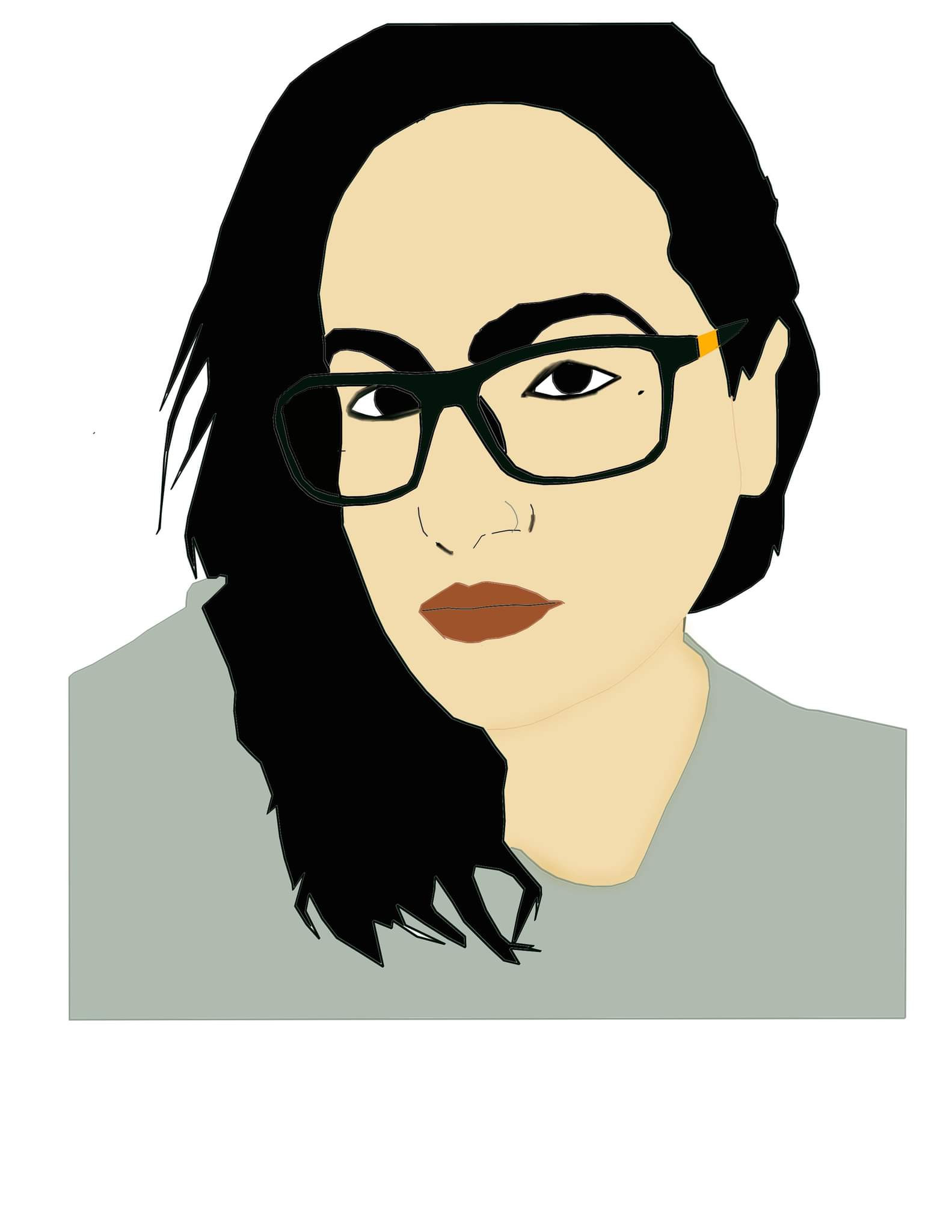
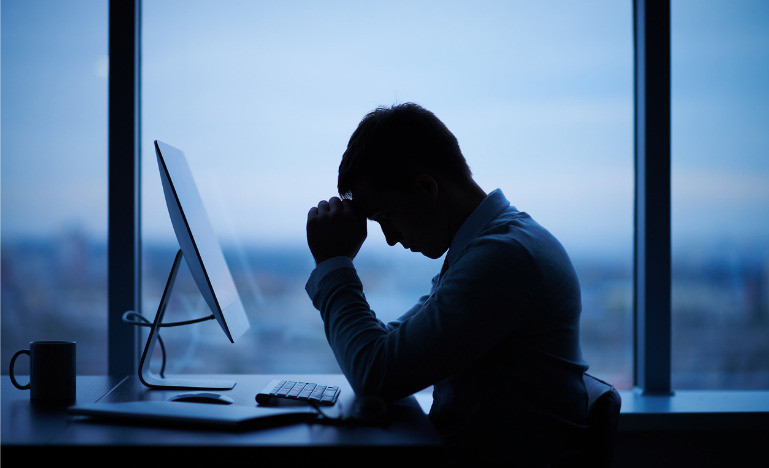
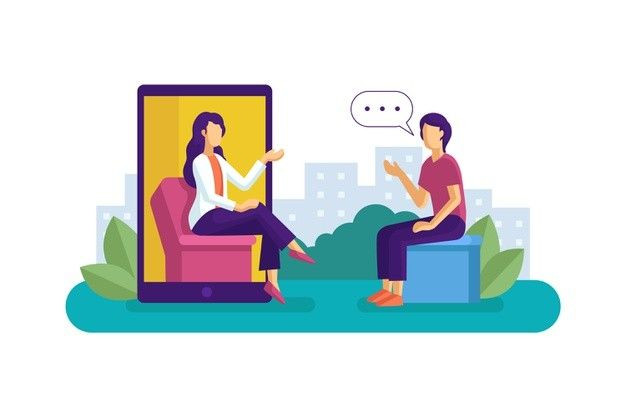
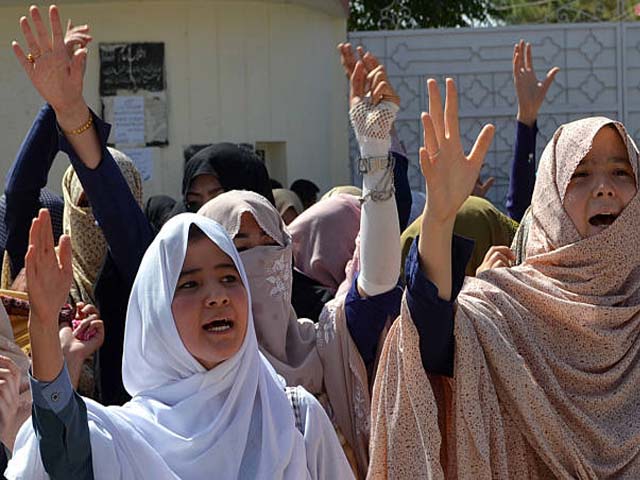
COMMENTS
Comments are moderated and generally will be posted if they are on-topic and not abusive.
For more information, please see our Comments FAQ